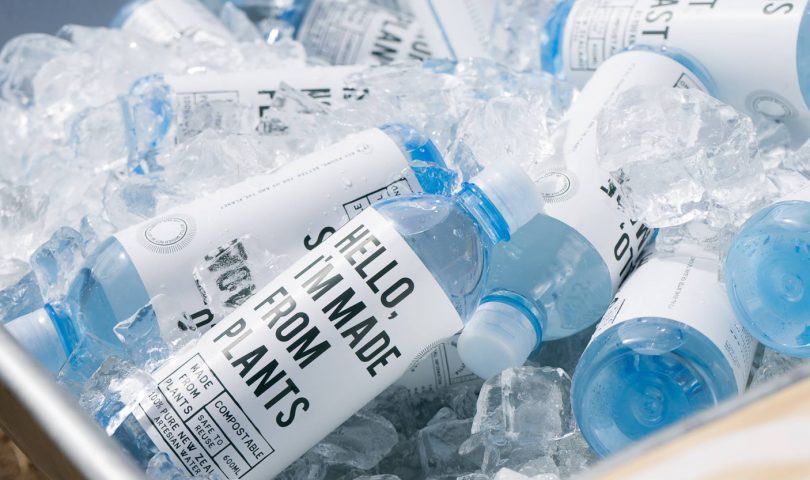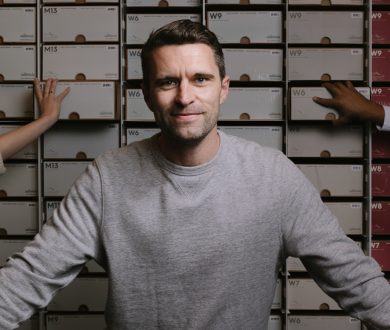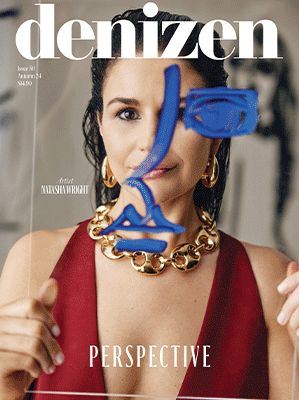Three days before being honoured at our Denizen Heroes Gala, Lou James was in Wellington being recognised with another accolade — the New Zealand Order of Merit. Joining the ranks of our country’s most outstanding, the Auckland-based mother of two was presented hers for her work in oncology rehabilitation. Humble in her achievement, James chiefly views both honours as a way to give back. “I’m most excited that it helps me let more people know that there is a need out there for cancer rehabilitation, so we can raise more funds and support more patients.” And in that single sentence, she summed up just what type of woman she is — selfless.
Stunned, as a young physiotherapist, by the way in which young patients recovering from cancer were left to fend for themselves after treatment, James set out to make a change. Recognising she held the tools to not only combat their ongoing physical symptoms, but the psychological ones too, she developed Pinc, a physiotherapy-based rehabilitation regime that endeavours to minimise the side effects of breast cancer treatments. First launching the initiative at her Auckland practice, it quickly became clear that what James had created held the potential to make a real difference, and as results began to develop, so did demand. In 2011, joined and encouraged by the University of Sydney’s Professor Rod MacLeod, the pair extended Pinc to aid women recovering from all forms of cancer and introduced the male-focused Steel programme.

Sign up to our free EDM subscription today.
“What Lou has done is to give people hope at a time when there may not seem to be much,” says Macleod, “she gives them something to focus on and to do for themselves.”
It’s acutely important work. With statistics showing that approximately one in four cancer survivors suffer from physical complications and one in 10 emotional problems following treatment, it’s shocking to think that just a fraction of those look for help. And though James admits the ongoing emotional complications weren’t necessarily what she expected the programme to combat, it is those results she has found to be so profound. “When you’re diagnosed with cancer, you lose a lot of control,” she says, “so when patients start regaining physical strength, they gain control with it.” It’s a confidence her programmes have now delivered to thousands. Teaching physiotherapists around the world how to create individually-tailored recovery plans for patients, it can be no surprise that James’ company is now Australasia’s largest cancer rehabilitation education provider.
The most poignant evidence, however, is undoubtedly in the human results. Take the 14-year-old boy who was so severely affected by his leukaemia treatment and the 28 lumbar punctures that came with it that his whole body hunched over in a spasticity pattern. Through rehabilitation and support, James’ physiotherapists were able to not only help him to straighten, but incredibly, learn to paddleboard. Or, how about the man who had to undergo such intense chemotherapy that he was left without feeling in his hands and feet? Unable to get himself out of bed in the morning, fast forward two years on the Steel programme and that same man was participating in the Challenge Wanaka triathlon. While the medical world can help cancer patients survive, what James has created helps them live.
Looking to the future, the goal remains the same, “I really believe that every person diagnosed with cancer should get individual, prescribed rehabilitation during their treatment so they can live as active and full lives as possible.” Working also with the Pinc and Steel Cancer Rehabilitation Trust, a volunteer-run charity that raises funds for those patients in need of financial support — there is no DHB or ACC funding available for oncology rehabilitation in New Zealand — she is determined. And though she admits she could afford “to step back a bit every once in awhile,” it just doesn’t seem to be in her nature. Nor that of the people around her. With a large percentage of those offering their time to the trust being physiotherapists and patients who have gone through it themselves, it seems her selflessness is contagious.






